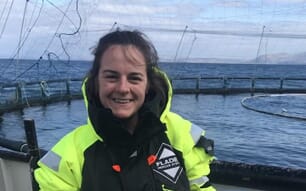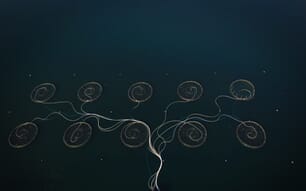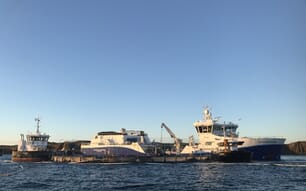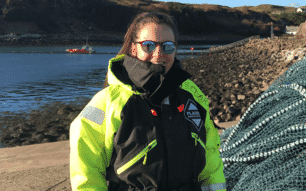“How many years was it you spent at university, Clara?” called my new colleague. At the time, I was pulling myself to the middle of a salmon pen in a small inflatable dinghy in the wind and rain to alter the angle of the feed spreader. “Five,” I replied. “Five long years.”
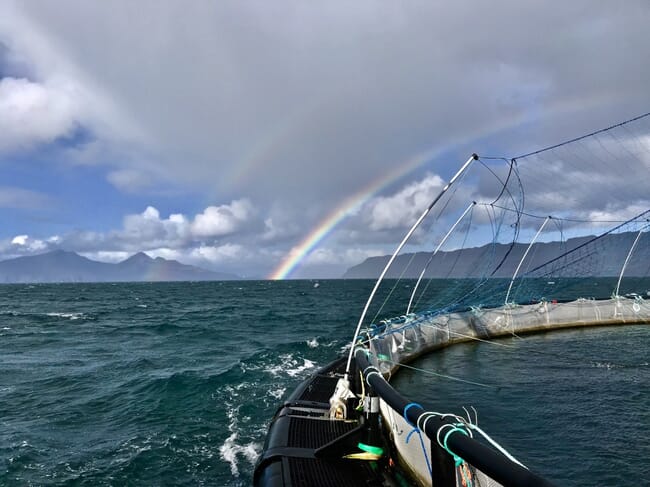
Yet here I am: as a farm technician on Marine Harvest’s site on Muck, the smallest of Scotland’s Small Isles. Having just started at the end of September, I write this as I finish up my first two-week shift on the island.
I come from a background in environmental consulting but chose to leave my Edinburgh office job back in May 2017. With it, I left behind a clear ladder of career progression and a life in the city. In September 2017 I ended up back at university to do an MSc in sustainable aquaculture. And now I find myself on Muck. In 14 months I’ve gained a degree and swapped the conventional nine-to-five – tights, skirts and blouses – for a two-week-on, two-week-off job, in life jacket, wellies and oilskins.
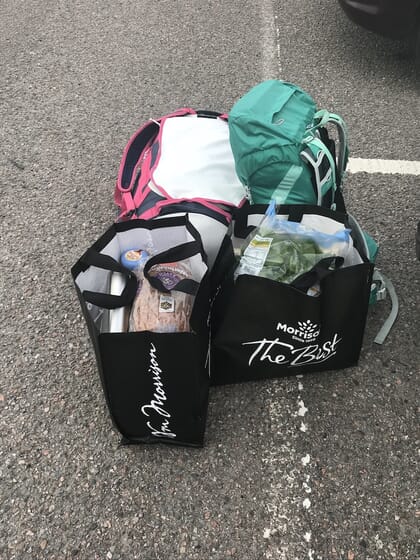
A lot of people thought I was crazy (and probably still do). Most people were at least surprised. Some offered words of support and enthusiasm about my change in career. My friends were worried for me – “Aren’t you nervous about being the only girl?”, “Where’s Muck?” or “How do you even farm salmon? Is it dangerous?” they would ask. But my parents thought it was great. My dad is an avid salmon fisherman and one of the greatest life lessons he has taught me is to never settle for existing in an office, doing a job you don’t enjoy.
After nearly four years of working in the environmental sector, I was frustrated. I didn’t feel like my work had much purpose or was making a meaningful impact. Added to this was a growing dislike for being in an office most of the time, staring at a computer screen for most of the day. I found myself moaning about my job a lot and the one thing I can’t stand in life is people who complain about something but make no effort to change the situation. I had become that person and knew I had to do something about it.
Salmon farming had interested me for a long time. It ticked the boxes of some of my greatest passions in life: the marine environment, farming, sustainability, Scotland’s west coast… and food. After a fairly last-minute decision, I applied to the Institute of Aquaculture at the University of Stirling and on my 27th birthday found out that I had been accepted onto the MSc course which started three weeks later. Sure, there were times when I was skint and in the library at midnight for the fourth day in a row, times that made me question my decision to leave my comfortable job and salary. But I am so happy I did it.
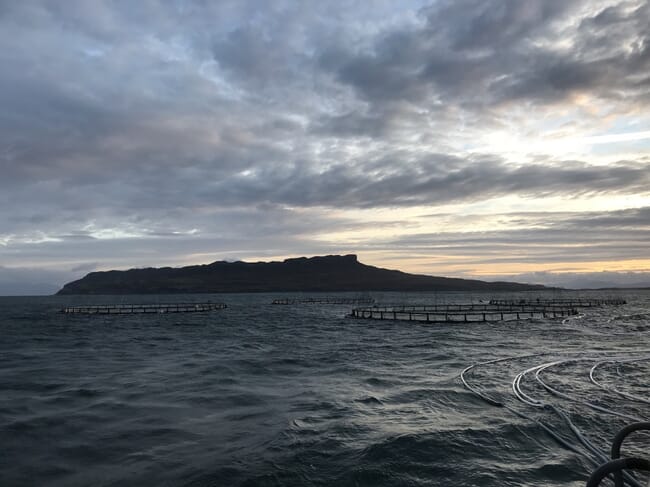
For Scotland, salmon farming is hugely important, particularly in rural, west-coast communities like Muck. But it also fits into a far bigger picture in areas such as food security, sustainability and global markets. Still a relatively new industry, salmon farming is also highly innovative and is evolving quickly. For me, all of these factors make it a really interesting sector to become involved in and I’m looking forward to playing a small part in the Scottish industry, both now and in the future.
However, I would be lying if I said I wasn’t apprehensive about going to Muck. Before starting on 24 September, I had never set foot on the island. And whilst I wasn’t fazed about “being the only girl”, I was nervous that I wouldn’t fit in because of my background. I had got it into my head that because I came from university, my new colleagues would think I was a total nerd – which I definitely am – but I need not have worried.
My experience so far of both Muck and the other guys on my shift has been nothing but positive. Muck is a beautiful island with what appears to be, on first impressions, a close-knit and dynamic community, which Marine Harvest is very much a part of. It’s early days but these first two weeks seem to have flown by – in part thanks to the people I’m working with. When you spend between 10 and 12 hours a day with the same five guys, for two weeks straight, getting along with them is fairly critical. They have all taken time to explain and show me things, made me feel welcome and – most importantly – we’ve laughed a lot. My only concern is that, being a bit smaller, I’m going to get really fat if I continue to eat at the same rate as them. But I’ll cross that bridge if and when I come to it…
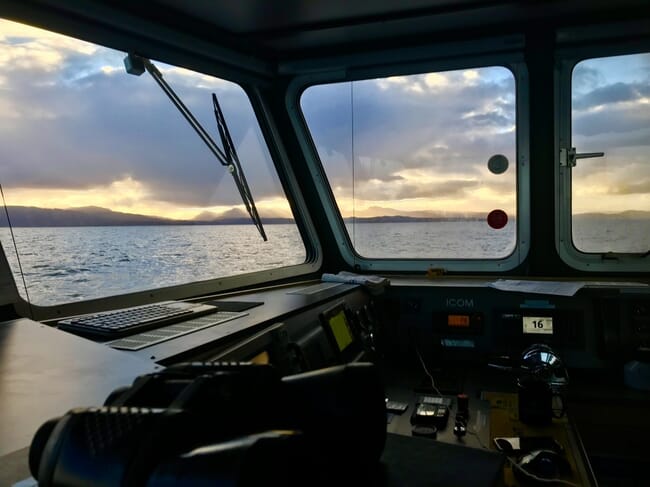
At the moment, my splicing and knot-tying “skills” don’t leave much to be desired, but that is why I am here. You can read as many books or academic papers as you like, sit in lectures, write essays, pass exams and get a degree in a subject, but until you have actually seen and done something hands on, you can’t truly understand it. I learnt a huge amount during my MSc year but, even after my first two weeks on Muck, I am already aware of how much more I can and need to learn about salmon and salmon farming.
So there you have it. I might not be your “normal” farm technician but wouldn’t life be boring if we were all the same? I’m grateful to have the opportunity to write this monthly column for The Fish Site over the coming year or so. I hope my stories will provide an honest and transparent account of my experiences, my job and life on Muck, as well as some thoughts on wider industry topics. While I hope others involved in the aquaculture industry will find it interesting and relatable, I also hope that people with no involvement (other than the salmon fillets they buy in the supermarket) will gain a better understanding of how salmon farms operate and why they’re important to the future, not only of Scotland, but also the world.

